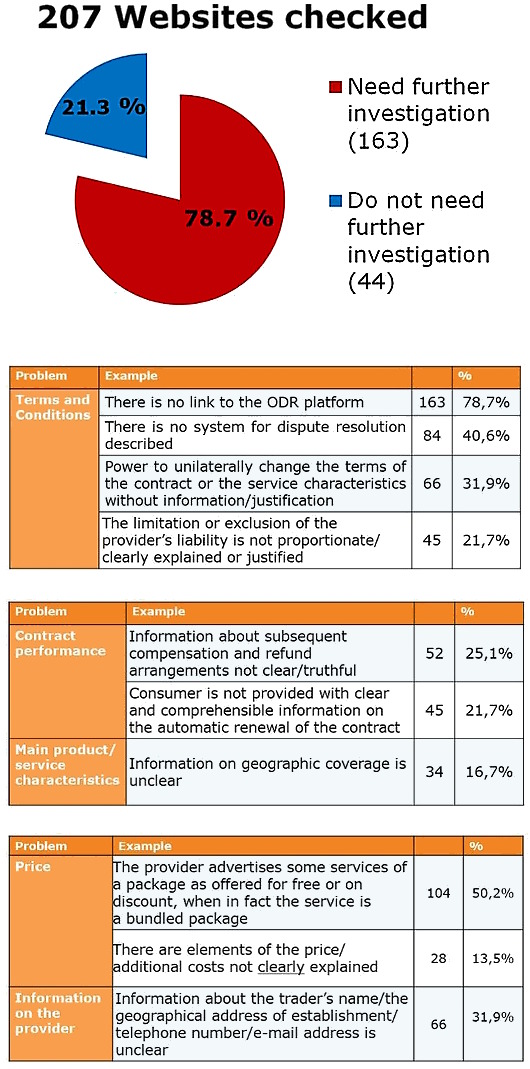EU Warns Mobile and Broadband ISP Websites May Shirk the Rules
The European Commission’s national consumer protection authorities have screened 207 EU websites (including some from the UK) for fixed/mobile phone, internet, audio and video streaming services, which revealed that 163 of them could be infringing consumer law by adopting “misleading practices“.
In this screening, national authorities checked whether providers offered truthful and clear information on their identity, the main characteristics of the product or service, the price and the contract performance. They also examined the clarity and the fairness of the terms and conditions (e.g. terms that limit or totally revoke the liability of the providers or terms that provide information on the existence of after-sale customer assistance and services).
Most of the checked websites provided telephone services in a package with other digital services, such as broadband (110 of the 207). Many offer only mobile phone subscriptions (39 in total), while there were also websites offering only streaming services (22) or broadband services packages excluding telephone (13) or cloud storage/email services (10).
Advertisement
Apparently some of the most common issues identified are the advertisement of allegedly free or discounted packages that are in fact a bundled offer (50% of sites), the lack of a dispute resolution system (40.6%), or the fact that some of the providers would unilaterally change the terms of the contract without information or justification to the consumer (31.9%).
Věra Jourová, Commissioner for Justice and Consumers, said:
“Consumers use their mobile phone or internet subscriptions every day and should be able to trust these services. This screening confirms, however, that a number of websites selling such services are misleading consumers by advertising fake discounts or not providing the full information necessary to make an informed choice.
I expect the false and misleading information to be corrected as soon as possible to ensure the sector fully respects EU consumer rules.”
National authorities are now expected to conduct a deeper examination of the 163 websites with irregularities, which if confirmed will need to be fixed. Sadly we don’t get a detailed breakdown of precisely which websites were tested but the overall results are below.

Mark is a professional technology writer, IT consultant and computer engineer from Dorset (England), he also founded ISPreview in 1999 and enjoys analysing the latest telecoms and broadband developments. Find me on X (Twitter), Mastodon, Facebook, BlueSky, Threads.net and Linkedin.
« 1Gbps FTTP Service Surfaces on BT Wholesale Availability Checker

















































Comments are closed